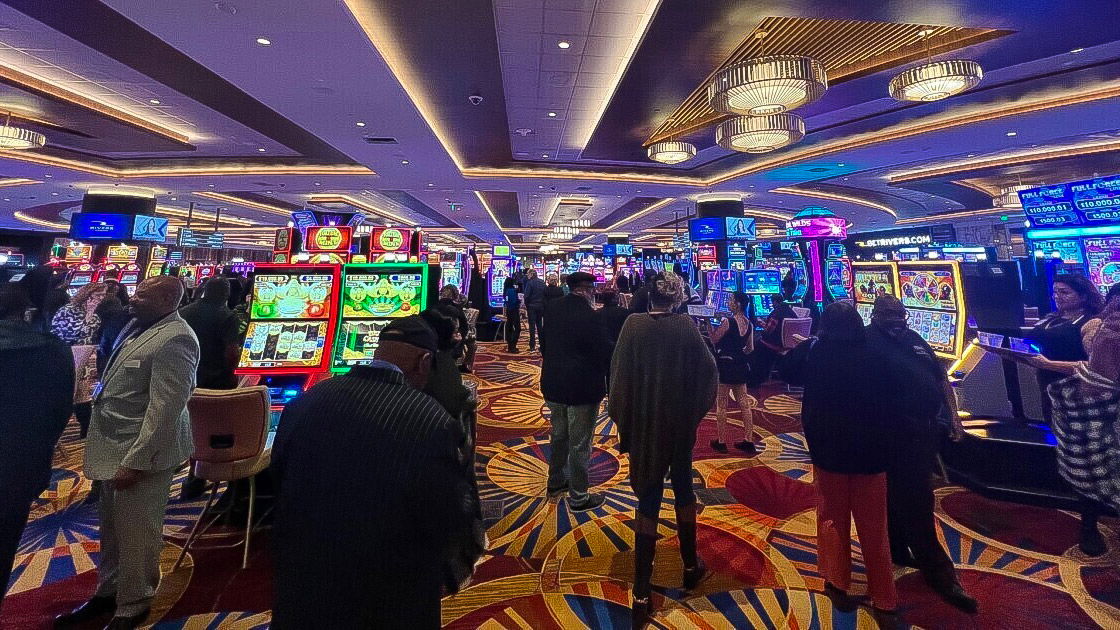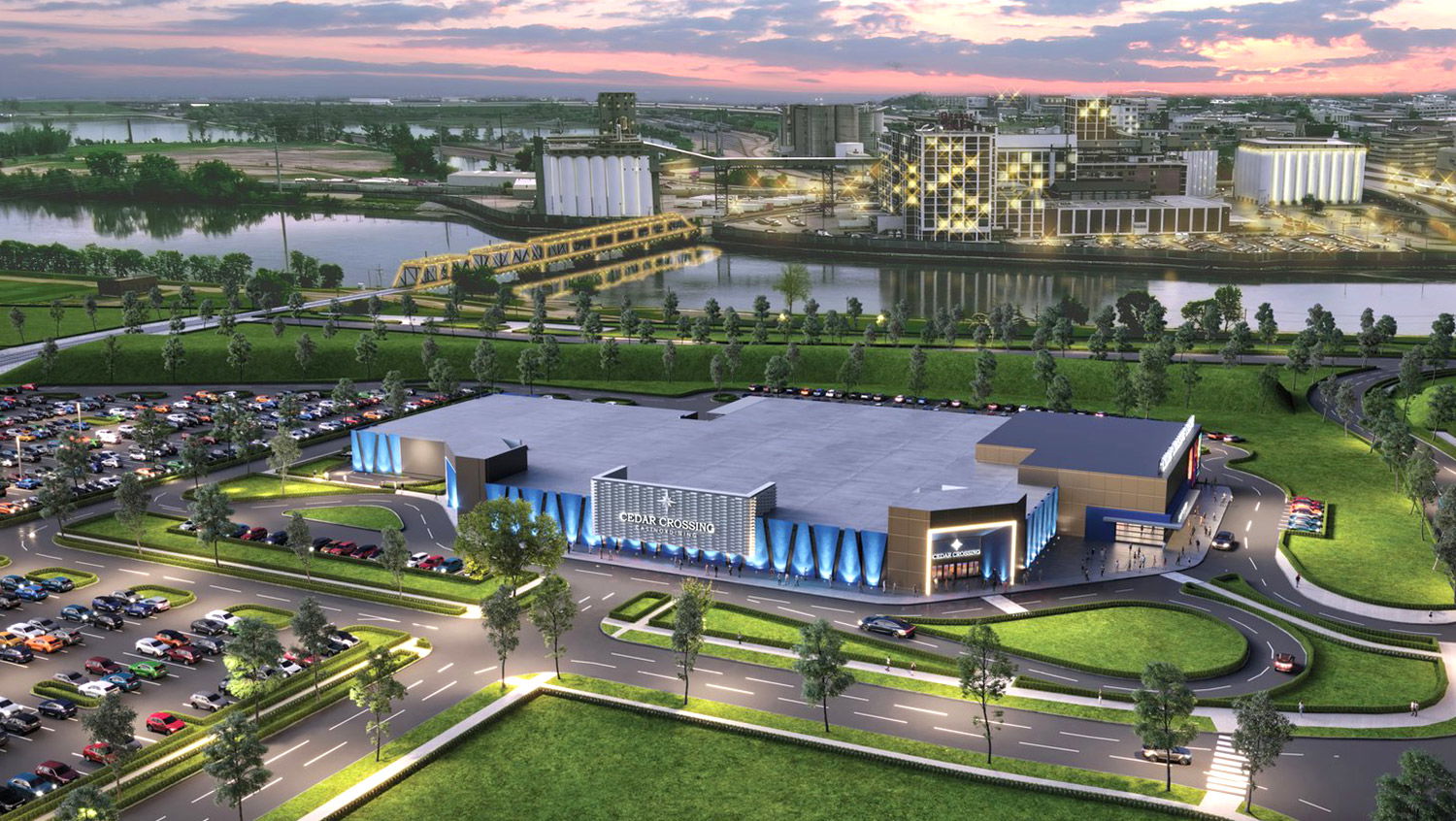The most iconic casino architecture from around the world

Besides being entertainment houses, casinos are symbols of luxury and architectural marvels.
From their grandeur in Las Vegas to the elegance shown in Monaco, these iconic buildings still captivate people's imagination to this day, as they did for decades.
But let’s further explore some of the most recognizable casino designs worldwide and delve into their history, inspiration, and the minds of the architects behind them.
Las Vegas: The gaming oasis
Throughout media and popular culture, Las Vegas is renowned for its vivid casino scene. Several iconic buildings make up the city's skyline, which is now synonymous with luxury and entertainment.
The Venetian
A brain-child of KlingStubbins, the Venetian was inspired by Venice, Italy, with its grand canals and ornate bridges.
The construction started in 1997 and took 2 years to complete, with the casino opening its doors to visitors in 1999.
The resort’s huge complex features The Opaline Theatre, The Sands Showroom, the Grand Canal Shoppes, and the Guggenheim Hermitage Museum. It was one of the most expensive modern resorts at the time of its opening, costing a total of $1.4 billion to be built.
Speaking of money, if you are someone who wants to have the fun that comes with casino games but doesn’t want to break the bank, there is a list of social casinos you can check out and enjoy the social factor of a night out at the casino!
Bellagio
Officially opened in 1998 and designed by Jon Jerde, Bellagio drew its inspiration from the Italian town of Bellagio on Lake Como.
As the peak of its luxury and architecture, it features a stunning glass ceiling and a grand staircase inviting players to the casino floor. However, the feature The Bellagio is the most famous for is its dancing water fountain, Fountains of Bellagio, synchronized with music, now a part of almost every Las Vegas Post Card or movie taking place there.
Caesars Palace
Themed after ancient Rome, massive columns, statues, and frescoes decorate the halls of the Caesars Palace, one of the most famous Vegas hotels.
Opened during the golden age of Vegas in 1966, the Palace features over 18 fountains and a massive statue of Julius Caesar, whose name the hotel bears.
Designed by Melvin Grossman, who had worked primarily in Miami, the design borrowed heavily from his earlier work on the Cabaña Hotel in Palo Alto, California.
Macau: Las Vegas of Asia
Moving on to Asia, one of the largest gambling and betting markets in the world. There, Macau has emerged as a major casino hub, rivaling Las Vegas and neighboring Hong Kong in grandeur and architectural innovation.
Wynn Palace
A prime example of modern casino style and architecture Wynn Palace opened fairly recently, in 2016.
The project was conceived by an American architecture company Leo A. Daly, who also participated in the construction. The resort features modern attractions like a 320,000-square-foot performance lake with a cable car over it, decorated in Chinese floral themes, and a 1,700-room hotel and pedestal gardens.
Morpheus Casino
Completed in 2018, Morpheus is another example of modern Asian architecture, known for its futuristic design with odd twists and turns, capturing sunlight through its center.
Designed and built by world-renowned architectural firm Zaha Hadid Architects, the building cost $1.1 billion to complete.
Monaco: Legacy of luxury
On the European continent, only a few countries are famous for their gambling and casino scene as Monaco. A home to one of the most iconic casinos in the world, known for its elegance and historical heritage.
Casino de Monte-Carlo
Designed by Charles Garnier, famous for designing the Paris Opera House, Casino de Monte-Carlo was originally constructed in 1856, then expanded in 1863, and later on in 1881.
Considering the work Garnier did before it, the casino features Beaux-Arts architecture with marble columns and intricate moldings. Perhaps the most famous appearance of his casino was in James Bond's "Casino Royale" but also numerous other films.
Singapore: Modern marvels
One of Asia's original four tiger economies, Singapore boasts some of the most modern and impressive casino designs, competing with Macau.
Marina Bay Sands
With the rooftop terrace considered one of the largest in the world, Marina Bay Sands features three towers connected by a massive rooftop terrace offering stunning city views, becoming a recognizable landmark in Singapore’s skyline photos and the first thing visitors see when entering the bay.
The most famous feat architect Moshe Safdie, known for unusual but attractive projects such as Habitat 67 in Canada; this resort opened in 2010, long before its contemporary competitors.
Ambitious projects that did not work as planned
While many casinos have achieved iconic status, some ambitious projects have not met expectations.
For instance, the Sands Casino in Bethlehem, Pennsylvania, initially faced financial struggles before rebranding and expanding.
Another example is the Revel Casino in Atlantic City, which closed in 2014 due to financial difficulties despite its innovative design.
Demolished buildings
Some iconic casinos have been demolished over the years after serving their purpose for decades.
The Dunes Hotel and Casino in Las Vegas, known for its Egyptian-themed design, was demolished in 1993 to make way for the Bellagio.
But, perhaps the most famous case of a failed casino was Las Vegas’ Tropicana casino, also the third oldest casino. The building was torn down in 2024 to make way for a baseball stadium after being in the business for 67 years, since 1957. Besides being known in Vegas for the frequent renovations, the halls of this resort once hosted Elvis shows and even scenes for “The Godfather” and “Diamonds Are Forever”.
When it comes to architecture, it is not just about grand designs and trying to capture a team. It also reflects the culture and spirit of the time at that exact location, and this is visible in the timeless elegance of Monte Carlo and the slick modern engineering marvels of Macau and Singapore.
So, regardless of how you look at it, whether from the perspective of a gambler or architecture lover, these buildings will continue to captivate thousands and thousands, making them iconic and familiar even to those who never visited.
















































